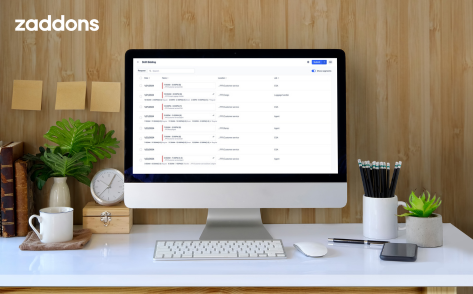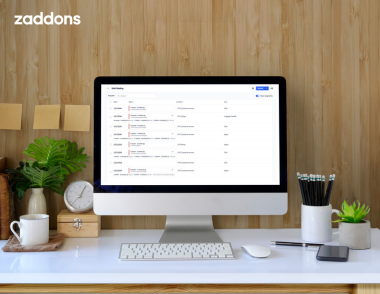A Toxic Workplace Relationship: Why HR Needs to Break Up with Excel
HR managers initially love Excel for its accessibility, but over time, its inefficiencies, crashes, and security risks become burdensome. Despite hesitations due to cost and commitment bias, modern HRIS solutions offer centralized data, automation, integration, and improved security, leading to long-term savings and efficiency.




Picture this: you are an HR manager with a tight deadline around the corner and a sea of Excel spreadsheets open in front of you. As you stumble through hundreds of thousands of cells, Excel crashes, and your last hour of work is voided. Sound familiar? For a long time, Excel has been a savior for thousands of companies, with its intuitive features being a major point of attraction. However, over the last 10 years, this once-thriving relationship has become a burden on HR managers across the globe. While Excel used to rule the world of data, new and improved HRIS solutions now offer a superior alternative to those looking for efficiency.
Like any relationship, Excel is no exception to the honeymoon phase. In the beginning, HR managers fall in love with an application that is easy to access and weighs little to no financial burden on the company. At face value, Excel’s simplicity in design and use, paired with its complexity in formulas, makes the decision easy, HR should be managed on Excel.
However, as time goes on and the honeymoon phase washes away, HR managers are faced with a harsh reality with the operational gaps becoming more and more prominent by the day. The issues start small, with duplicate data or the occasional application crash, and eventually snowball into much larger concerns, including:
- Application Overload: As large datasets consume more of a computer's processing power, Excel crashing is a constant issue that deters a workplace from completing tasks in a time-effective manner.
- Lack of Audit: Excel lacks a key feature needed in HR: an audit trail. With numerous people navigating and making edits to each worksheet, it is prone to duplication, confusion, and no defense when there is a dispute.
- Decentralized Platform: Excel does not integrate with many complementary HRIS solutions, and not being able to store all HR information in a single platform reduces efficiency.
- Security & Risks: An HR department deals with a lot of sensitive information, and filing it all in Excel exposes the company to significant security risks, including the potential for data breaches.
- Time-consuming: Having to constantly switch between various Excel sheets when navigating different HR tasks can significantly hinder a manager's free time for more value-adding activities.
- Incorrect Data: Excel's simplicity is a double-edged sword. Its ease of use can be your worst enemy, as a simple incorrect or duplicated entry can lead to significant issues.
Despite the growing pains experienced by companies using Excel for their processes, the hesitancy to move on to more efficient solutions is tremendous. There are three key barriers that keep companies from moving on. Firstly, commitment bias makes managers feel secure in the software they've heavily invested in, making starting over seem too daunting. Secondly, while some firms made early-bounds in-house HR systems, the lack of maintenance resulted in these platforms becoming obsolete. Losing the willingness to try for something better, these companies revert to what is comfortable: the familiarity of Excel. Finally, as with any change, HRIS software comes with a price tag, and more often than not this initial cost seems overbearing when weighed against a relatively cheap Excel.
What these companies are missing is a forward-looking approach that shows that the initial adoption cost is a drop in the ocean when considering long-term savings and avoiding all the aforementioned issues. Through ROI calculators, companies can begin to grasp the benefits that lay behind the daunting change of their processes. Additionally, while an internal transition can be tough on employees, managers can minimize the burden by implementing automation thoughtfully to ensure that workflow is complemented and not complicated.
Once you distance yourself, it becomes all the more clear that HR software offers many more benefits than your lousy Ex(cel) ever could, including:
- Centralized Platform: Where you once played a game of “Where is the data?” with Excel, these platforms now allow you to store all of your company's information in one single source of truth.
- Automation & Efficiency: Simple tasks can be automated by HR platforms, freeing up the managerial workload.
- Seamless Integration: With so many beneficial add-ons and solutions, HRIS software easily integrates with other systems to ensure you don’t have to leave the application.
- Secure Data: More security measures are implemented to protect sensitive information, giving HR managers peace of mind when it comes to maintaining trust in their solutions.
When transitioning from Excel, both managers and employees expressed significant distrust in the new system, worried about their workload or job security. When implemented carefully, they began to appreciate the ease of accessing information quickly, not having to worry about manual disputes, and finding a balance between automation and manual work that complements their work style rather than disrupts it.
It’s time for every HR manager to take a moment and really think about their relationship. Is valuable company time being spent on manual tasks that could be instant? Is your team spending more time clicking through different spreadsheets than actually managing your workforce? Is the reliance on this outdated HRM platform holding your company back from achieving your goals?
If any of those questions caused even the slightest hesitancy, it may be time to move on to bigger, better things. With a renewed focus on cost-savings, efficiency, and a forward-looking approach, making the switch to an HRIS is a no-brainer.
Subscribe to our Newsletter
Stay ahead of the curve with exclusive updates, valuable insights, and exciting opportunities delivered directly to your inbox
Related articles





